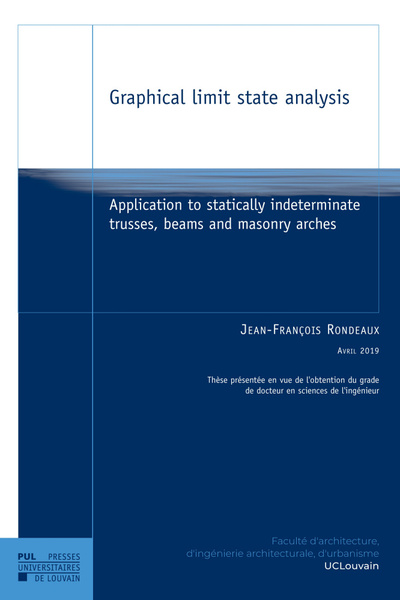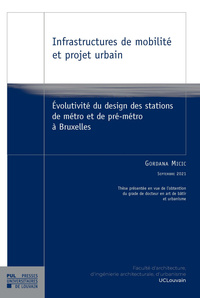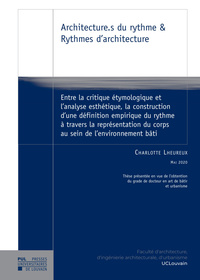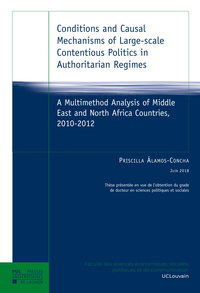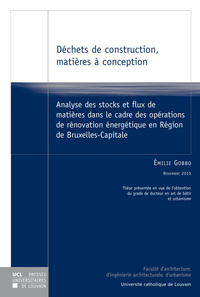Nous utilisons des cookies pour améliorer votre expérience. Pour nous conformer à la nouvelle directive sur la vie privée, nous devons demander votre consentement à l’utilisation de ces cookies. En savoir plus.
Graphical limit state analysis
Pu Louvain - EAN : 9782875588050
Édition papier
EAN : 9782875588050
Paru le : 22 mai 2019
46,00 €
43,60 €
Epuisé
Pour connaître votre prix et commander, identifiez-vous
Arrêt définitif de commercialisation
Notre engagement qualité
-
 Livraison gratuite
Livraison gratuite
en France sans minimum
de commande -
 Manquants maintenus
Manquants maintenus
en commande
automatiquement -
 Un interlocuteur
Un interlocuteur
unique pour toutes
vos commandes -
 Toutes les licences
Toutes les licences
numériques du marché
au tarif éditeur -
 Assistance téléphonique
Assistance téléphonique
personalisée sur le
numérique -
 Service client
Service client
Du Lundi au vendredi
de 9h à 18h
- EAN13 : 9782875588050
- Collection : THESES DE LA FA
- Editeur : Pu Louvain
- Date Parution : 22 mai 2019
- Disponibilite : Ne sera plus distribué par nous
- Barème de remise : NS
- Nombre de pages : 166
- Format : H:160 mm L:240 mm
- Poids : 275gr
- Interdit de retour : Retour interdit
- Résumé : The art of structural design requires specific methods and tools. One of those consists in modelling the structural behaviour through a network of straight bars, whether in compression (struts) or in tension (ties), and in expressing its static equilibrium through classic graphic statics reciprocal diagrams: a form diagram describing the geometry of a strut-and-tie network and a force diagram representing the vector equilibrium of its nodes. When it comes to statically indeterminate structures, the lower-bound theorem of Plasticity avoids any overestimation of the load bearing capacity, which allows the designer to select one of the possible equilibrium states. Considering that a limit state analysis of these indeterminate equilibriums can better support the design process when it shares the same graphical environment, the thesis consists in proposing a graphical methodology for constructing a parametric force diagram resulting from the combination of independent force diagrams. The stress distribution is then modified by manipulating the relative position of some vertices of the force diagram until it reaches limit states; hence, the possibility of identifying the collapse state and the corresponding load bearing capacity of various types of structures such as pin-jointed trusses, beams or masonry arches. The analysis of the admissible geometrical domains for these specific vertices allows a better understanding of the behaviour of statically indeterminate structures at limit state and may be helpful when designing them.

